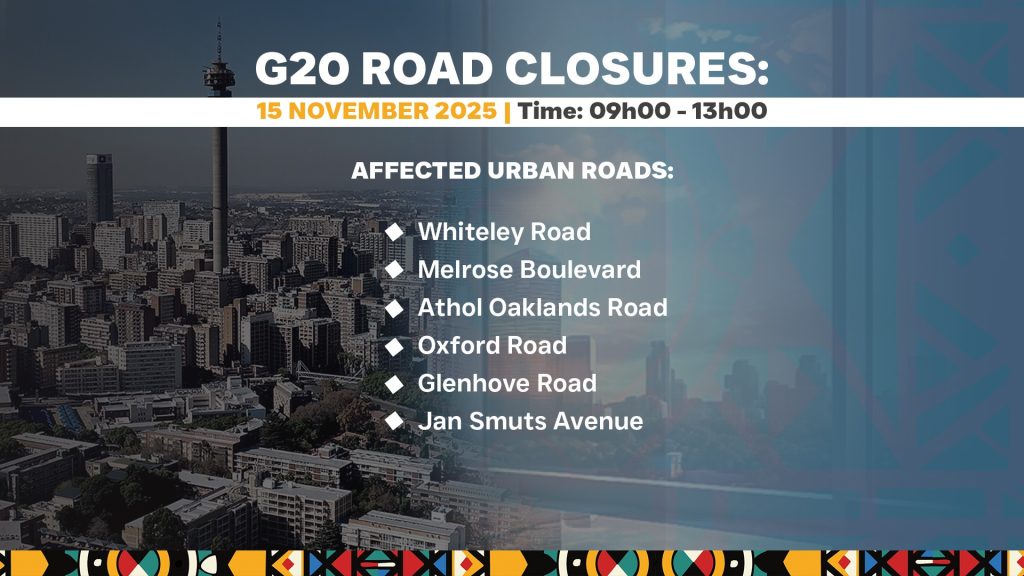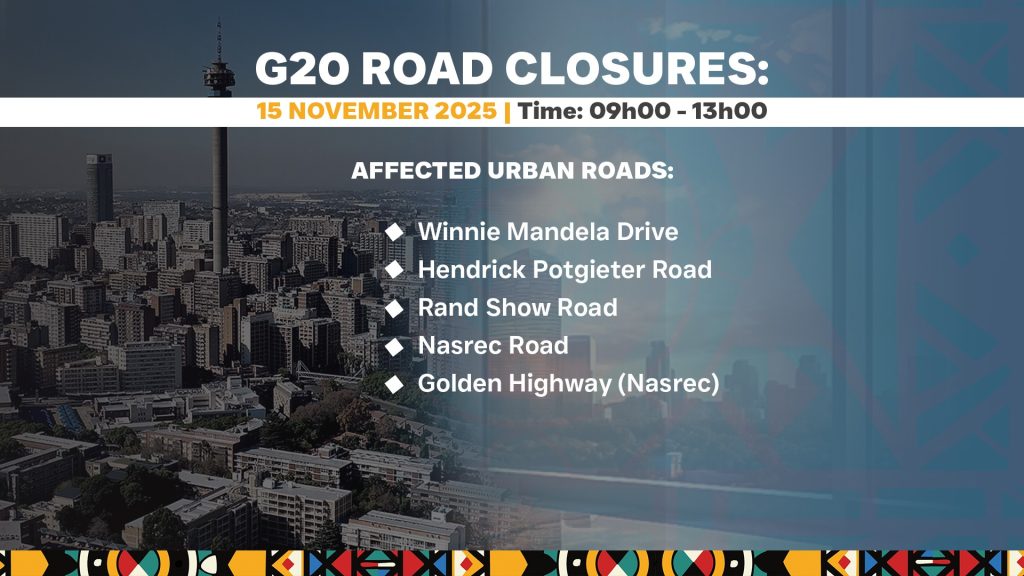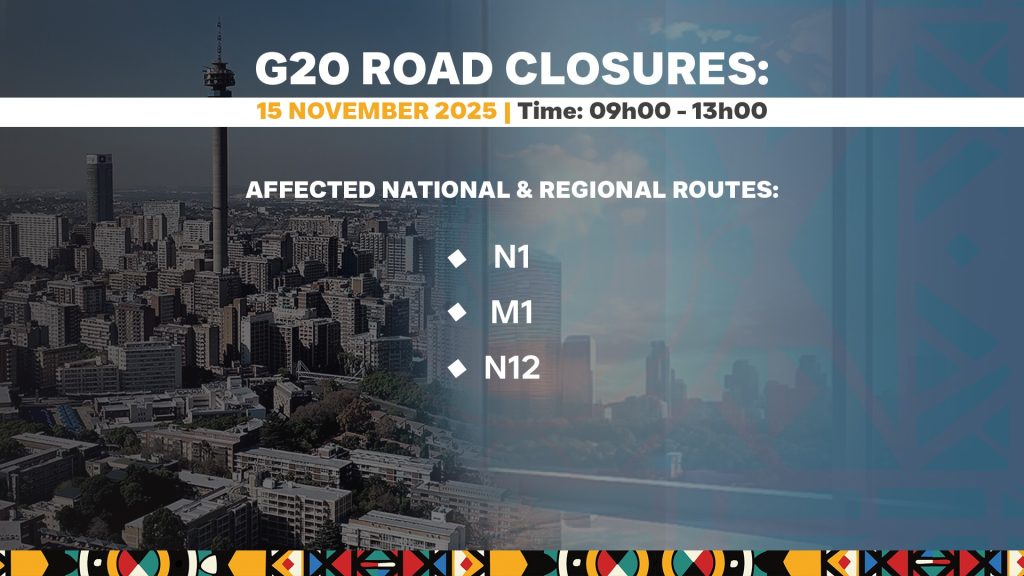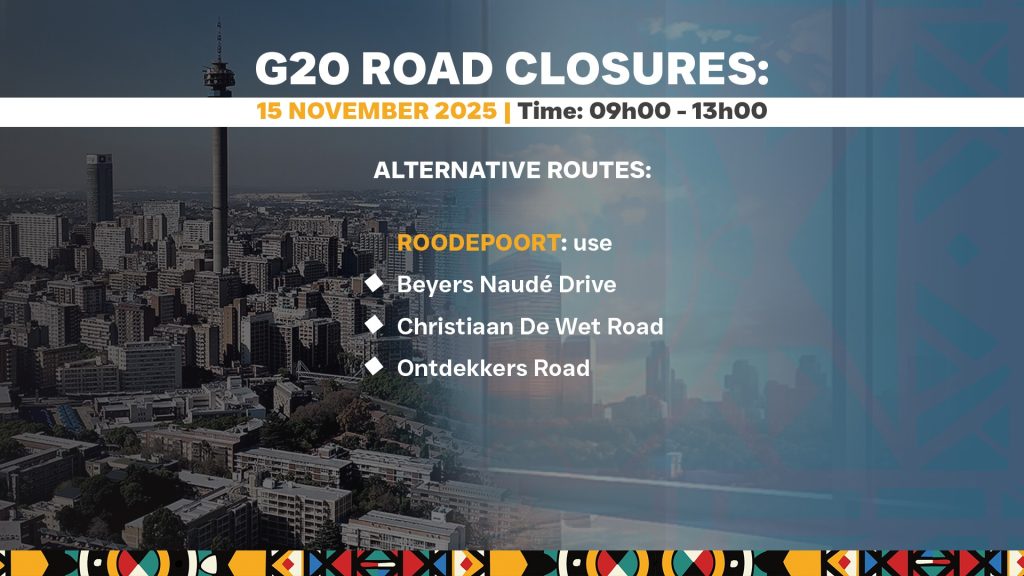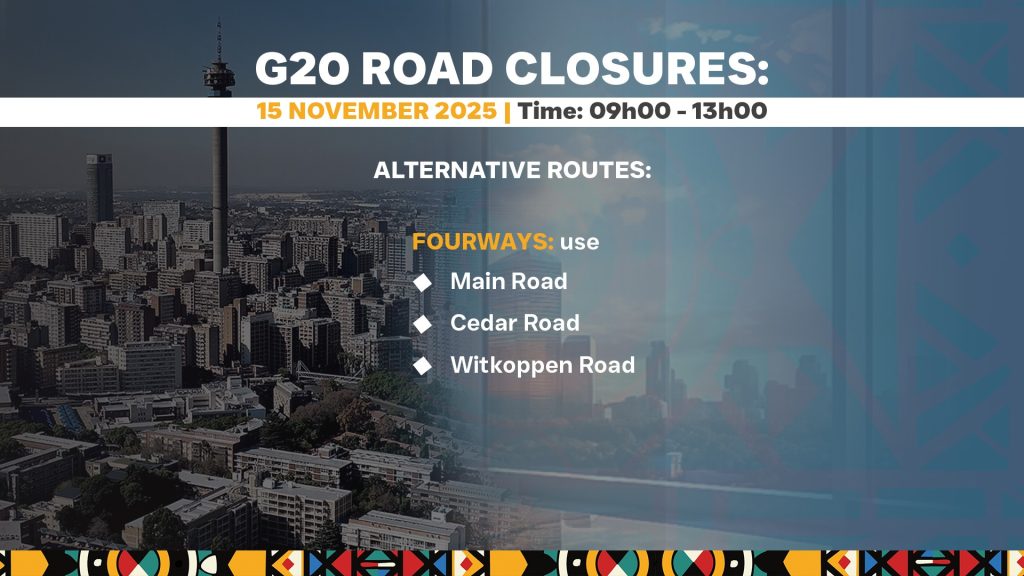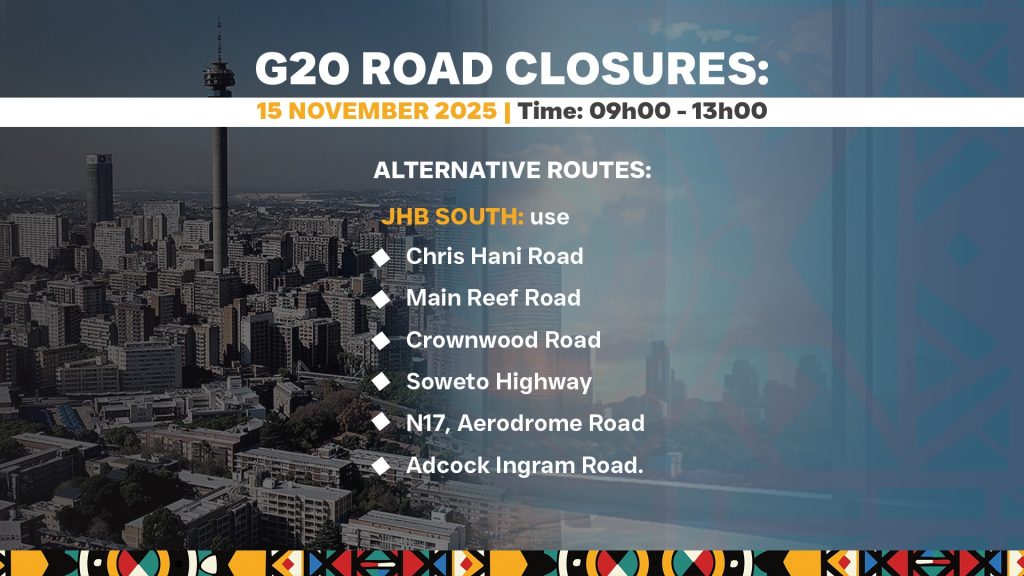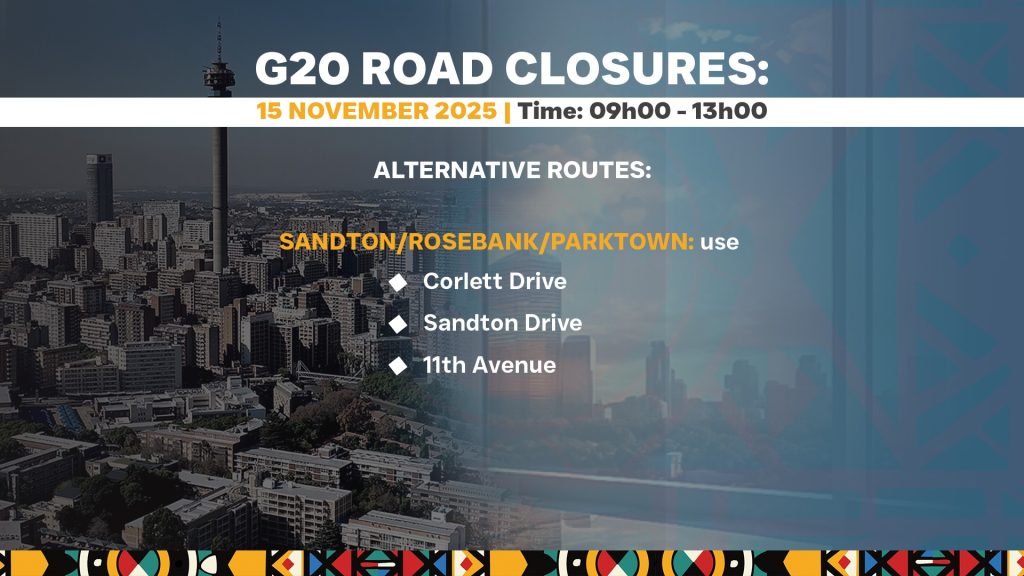Motorists in Johannesburg are advised to plan their routes carefully this weekend, as several key roads will be closed temporarily for a G20 joint traffic operation led by Gauteng law enforcement agencies.
The Road Traffic Management Corporation (RTMC), Gauteng Traffic Police (GTP), Johannesburg Metropolitan Police Department (JMPD), and the South African Police Service (SAPS) confirmed that rolling road closures and lane restrictions will take place on Saturday, 15 November 2025, between 09h00 and 13h00.
The RTMC says the coordinated operation will focus on public safety, law enforcement, and congestion management while meeting the high-security demands of the G20 summit.
ALSO READ: G20 Leaders’ Summit Comes to Johannesburg: What Gauteng Needs to Know (22–23 Nov 2025)
Coordinated Road Safety Operation Across Johannesburg
In a joint statement, the RTMC and its partners said the exercise forms part of broader traffic-safety and compliance measures implemented during high-volume events and international gatherings.
“These measures are not meant to disrupt movement,” the statement noted. “They aim to protect road users, maintain compliance, and ensure order during major events that draw increased traffic.”
Officials emphasised that the proactive approach helps reduce unnecessary congestion and allows quicker coordination between agencies during emergencies.
Johannesburg Roads Affected by the G20 Closures
Temporary restrictions will affect parts of Sandton, Rosebank, Parktown, Melrose and Johannesburg South. Motorists can expect short rolling closures along these main routes:
Central and Northern Johannesburg
Whiteley Road, Melrose Boulevard, Athol Oaklands Road, Oxford Road, Glenhove Road, Jan Smuts Avenue
Southern and Western Corridors
Winnie Mandela Drive, Hendrick Potgieter Road, Rand Show Road, Nasrec Road, Golden Highway (Nasrec)
Inspection teams, JMPD convoys, and RTMC enforcement units will move between points, with closures reopening quickly once cleared.
Alternative Routes for Johannesburg Motorists
Motorists should plan and make use of alternate roads to avoid delays:
Roodepoort
Use Beyers Naudé Drive, Christiaan De Wet Road or Ontdekkers Road instead of Hendrick Potgieter Road.
Fourways
Use Main Road, Cedar Road, or Witkoppen Road.
Sandton, Rosebank, and Parktown
Avoid Jan Smuts, Oxford and Rivonia Roads by using Corlett Drive, Sandton Drive, or 11th Avenue.
Johannesburg South – Nasrec, Riverlea, and Ormonde View
Take Chris Hani Road, Main Reef Road, Crownwood Road (Fordsburg–Crown Mines), Soweto Highway, N17, Aerodrome Road, or Adcock Ingram Road.
Traffic officers will be stationed at major intersections, with signage and real-time updates available through official channels and local radio.
Gauteng’s Joint Law Enforcement Strategy
This operation supports Gauteng’s integrated enforcement strategy, strengthening coordination between national, provincial, and municipal agencies.
The RTMC said joint deployments help address speeding, unroadworthy vehicles, and unsafe driving across high-density corridors. The exercise will also test new tools in the RTMC’s Smart Traffic Control Network, which links camera feeds, number-plate recognition, and live data to improve response times and route management.
Access for Emergency and Essential Services
Emergency and essential services will have uninterrupted access throughout the operation. Dedicated lanes will remain open for ambulances, fire services, and police vehicles, ensuring emergency response times are not affected.
The RTMC confirmed that it has worked closely with Johannesburg Emergency Management Services (EMS) to map alternative corridors and maintain full operational readiness.
Why the G20 Traffic Operation Matters for Gauteng
Johannesburg’s transport corridors carry more than 900,000 vehicles daily, one of the heaviest volumes in South Africa. During major events like the G20, traffic surges sharply, increasing the risk of congestion and accidents if routes are unmanaged.
Authorities believe proactive coordination will prevent bottlenecks, maintain smoother traffic flow, and protect both residents and visitors. The Department of Transport has noted that similar operations earlier this year helped reduce serious crashes on Gauteng highways.
How Motorists Can Support the Operation
Drivers can make the day run smoothly by:
• Leaving early to allow for delays.
• Checking vehicle roadworthiness before travelling.
• Following officers’ directions along affected routes.
• Staying informed via RTMC, JMPD, and GTP social media updates.
• Using navigation apps like Google Maps or Waze for live traffic alerts.
Residents are also urged to share only verified information and avoid posting unconfirmed closure details on social media.
Smarter and Safer Roads for Gauteng
Saturday’s coordinated operation reflects Gauteng’s ongoing investment in smarter, data-driven traffic management. By combining enforcement, technology, and collaboration, the province aims to improve safety outcomes, ensure compliance, and advance its Smart City goals.
Insights from this operation will guide future planning for high-traffic periods, including holidays and major events.
Drive Smart and Arrive Safe
The success of this operation depends on cooperation. As Gauteng hosts world leaders and visitors, local motorists play a crucial role in keeping roads safe and efficient.
Plan, respect diversions, and help maintain the province’s reputation for world-class coordination and hospitality.
Visual Summary for Motorists
To help drivers prepare, the RTMC has issued official visual guides showing affected routes and alternative roads:
